Last month, the California Supreme Court sent good news to the development community. And you thought it would never happen!
In Sterling Park v. City of Palo Alto, the Court overruled several lower court decisions that had limited the scope of the developer protections provided by California’s Mitigation Fee Act, which was adopted in 1987. The Act limits the conditions on development that a local agency can impose that divest the developer of money or a possessory interest in property.
Prior to the adoption of the Mitigation Fee Act, developers faced a “Catch-22” situation when local agencies imposed fees or exactions as conditions to approval of development permits. If the fee was paid to obtain the permit, the developer was prohibited from challenging the fee. Therefore, in order to challenge a fee or exaction, the developer had to refuse to pay the fee, thereby forgoing the right to proceed with the development. The 1987 Act changed that situation by allowing developers to proceed with their projects while also protesting the imposition of any fees, dedications, reservations or other exactions imposed as permit conditions.
However, after passage of the Act, subsequent court decisions narrowed the Act’s scope by ruling that its protections applied only to fees imposed for the purpose of defraying all or a portion of the cost of public facilities “related to the development project.” Fees and exactions unrelated to the project could be imposed without regard to the protections in the Act.
In the new Sterling Park case, the Supreme Court gave the Mitigation Fee Act a much broader interpretation. The Court held the Act governs fees and other forms of exactions imposed by a local agency as permit conditions, whether related or unrelated to the project.
The Mitigation Fee Act does not apply to general land use regulations that limit the use of property. However, any conditions on development requiring the payment of money or the transfer of property interests can be scrutinized for compliance with this Act and the constitutional limitations on development permit conditions.
Since the adoption of the Mitigation Fee Act, the United States Supreme Court has issued a series of decisions recognizing constitutional limitations on fees and exactions imposed as permit conditions. The first decision, Nollan v. California Coastal Commission, argued before the Supreme Court on behalf of the Nollans by Trainor Fairbrook attorney Bob Best, was decided in 1987. This decision requires that real property dedications imposed as a condition on land use permits have an “essential nexus” between the type of exaction and some adverse effect of the project. Subsequently in Dolan v. City of Tigard, the Supreme Court required permit exactions to be “roughly proportional” to the adverse effect caused by the project. This year, in Koontz v. St. Johns River Management District, the court ruled that the same constitutional limitations govern fees and monetary exactions.
When negotiations over land use permit approvals fail to reach a satisfactory conclusion, the Mitigation Fee Act provides a process to enforce these constitutional limitations on the authority of government agencies to impose fees and exactions as permit conditions.
Please contact Trainor Fairbrook if you have any questions about the Sterling Park case or if you would like a copy of that case or the Act.







